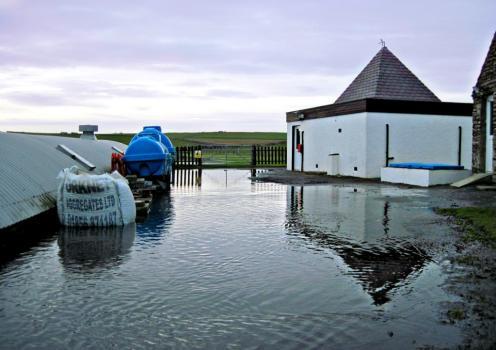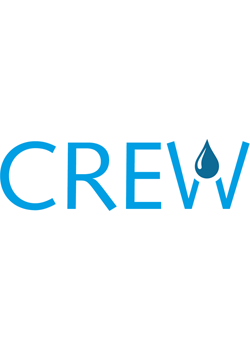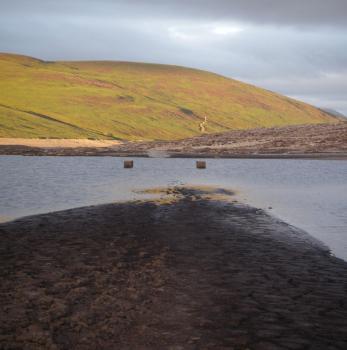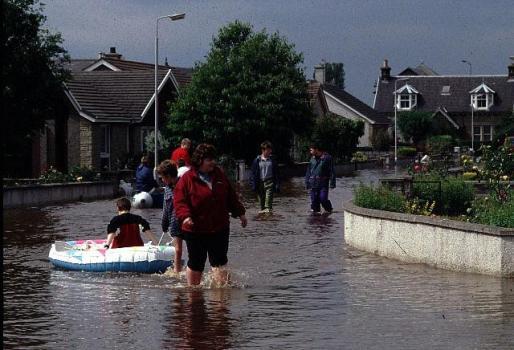The use of alum sludge and sewage sludge as a soil improver on Barra
A key guiding principle is that the use of organic wastes as a fertiliser should only be used on land that would normally be fertilised as part of its management regime otherwise it becomes a waste disposal route rather than a beneficial recycling activity. This is paramount to both the external perception of the activity and to environmental protection.
The uses for ozone in the treatment of water and wastewater

In most water treatment plants ozone is used for multiple applications. Ozone is now used as a disinfectant, an oxidant of organic and inorganic molecules, a coagulant aid, removing taste and odour, a means of controlling algae and as a way of biologically stabilising water. Ozone is very effective for disinfection against bacteria, viruses and protozoa. However, when used in a disinfection capacity, it is often used when contaminants are highly resistant to more conventional disinfectants.
CREWs NEWs July-September 2012

The July-September 2012 edition of CREWs NEWs is available now. Find out about CREW events, projects, contract opportunities and competitions as well as news and events from the wider water sector. If you have any comments about CREWs NEWs or would like to advertise an upcoming event please get in touch.
Implementation Processes for the Flood Risk Management (Scotland) Act

This report provides evidence to SEPA and the Scottish Government on the implementation processes for the Flood Risk Management (Scotland) Act 2009 (hereafter FRM Act) within existing policy frameworks. It gives guidance on the roles and processes of the Flood Risk Management local advisory groups. These groups are now termed local advisory groups as opposed to ‘sub-district’ advisory groups as termed in the FRM Act. These local advisory groups will be established by autumn 2012. Much of the report is based on recent findings relating to good practice for catchment management and research into how Area Advisory Groups have undertaken their responsibilities in Area Management Planning under the Water Framework Directive.
Flood Insurance Provision and Affordability Beyond the Statement of Principles: Implications for Scotland

This survey makes a preliminary assessment of possible social implications in Scotland of changes to the flood insurance market that may follow the end of the Scottish Statement of Principles on the provision of Flood Insurance. The Statement was agreed between the Scottish Government and the Association of British Insurers (ABI) in December 2008 and is due to finish in July 2013. It has both secured the availability of flood insurance to communities at risk of flooding in Scotland, and ensured that the Scottish Government has invested in flood risk management measures during this period. The ABI have made clear that they do not intend to renew the agreement owing to their belief that it prevents the development of a free market in flood insurance.
There is a need for ongoing review and advice on the technical effectiveness of measures to mitigate diffuse pollution and the effectiveness of the policy to deliver them. The Scottish Government needs support on understanding how to better spend across these measures, to get the most value. This report sets out the findings from a workshop held on diffuse pollution mitigation strategies which aimed to: provide updates on available data on effectiveness of existing measures; to review strategies for assessing effectiveness and uptake of measures; and to identify potential measures that could be supported in the future.
CREWs NEWs Jan-March 2012

The Jan-March 2012 edition of CREWs NEWs is available now. Find out about CREW events, projects, contract opportunities and competitions as well as news and events from the wider water sector. If you have any comments about CREWs NEWs or would like to advertise an upcoming event please get in touch.
CREWs NEWs April-June 2012

The April-June 2012 edition of CREWs NEWs is available now. Find out about CREW events, projects, contract opportunities and competitions as well as news and events from the wider water sector. If you have any comments about CREWs NEWs or would like to advertise an upcoming event please get in touch.
James Hutton Institute's Hydro Nation consultation response

The consultation sought comments on the Scottish Government's proposals for a Water Resources Bill.
This consultation builds on the previous "Building a Hydro Nation" consultation in 2011. Proposals for a Water Resources Bill are set out in the context of the wider Hydro Nation agenda, and comments are invited. The Bill proposals include placing a duty on Scottish Ministers to develop the Hydro Nation programme of work, in collaboration with key organisations such as Scottish Water, SEPA and the Enterprise Agencies. Other proposals include updating legislation to manage temporary water shortages, community septic tanks and pro-actively manage substances from entering the water environment. The consultation closed on 12 March 2012.

A 6 page report which examines the protocol for aerial spraying of Asulam (for bracken control). The existing operational protocol for spraying by helicopter requires a minimum 50 meter no-spray buffer zone from all surface water bodies, wells, boreholes and springs. This report looks at 1) the science behind the 50 meter buffer zone value; 2) the definition of a "watercourse" in upland catchments that could be used for this guidance.




